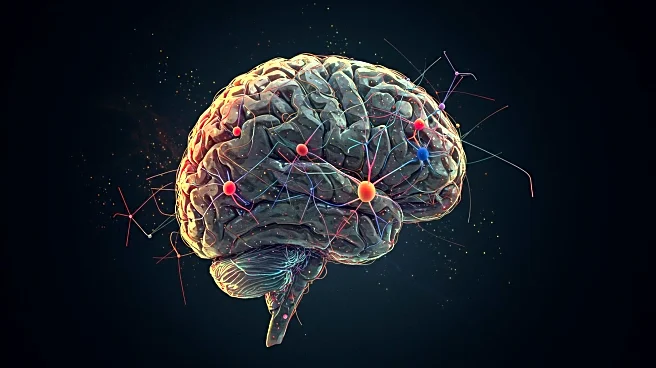What is the story about?
What's Happening?
A recent large-scale genetic study published in Molecular Psychiatry has identified a significant genetic overlap between attention-deficit/hyperactivity disorder (ADHD) and dyslexia. Researchers analyzed data from millions of participants, uncovering 49 genomic regions associated with both conditions, 43 of which were previously unidentified. This discovery highlights a distinct genetic cluster linking ADHD and dyslexia, separate from other neurodevelopmental traits like autism. The study found that several genes, such as SORCS3 and AMT, play roles in brain development, learning, and memory, offering new insights into the biological basis of learning and attention problems.
Why It's Important?
The findings from this study are crucial for understanding the genetic underpinnings of ADHD and dyslexia, which could lead to more personalized educational and therapeutic approaches. By identifying shared genetic factors, researchers can better understand the biological mechanisms that contribute to these conditions, potentially improving diagnosis and treatment strategies. This research may also influence public policy and educational practices by highlighting the need for tailored interventions for individuals with these neurodevelopmental disorders, ultimately benefiting affected individuals and their families.
What's Next?
Future research may focus on exploring the identified genomic regions to develop targeted therapies and interventions for ADHD and dyslexia. Additionally, educational systems might consider integrating these findings into their curricula to better support students with these conditions. Researchers may also investigate the potential for genetic testing to aid in early diagnosis and intervention, potentially improving outcomes for individuals with ADHD and dyslexia.
Beyond the Headlines
The study's findings could have broader implications for understanding the genetic basis of other neurodevelopmental disorders. By revealing a genetic overlap between ADHD and dyslexia, researchers may uncover similar links with other conditions, prompting a reevaluation of how these disorders are classified and treated. This could lead to a shift in how society perceives and supports individuals with neurodevelopmental differences.
















